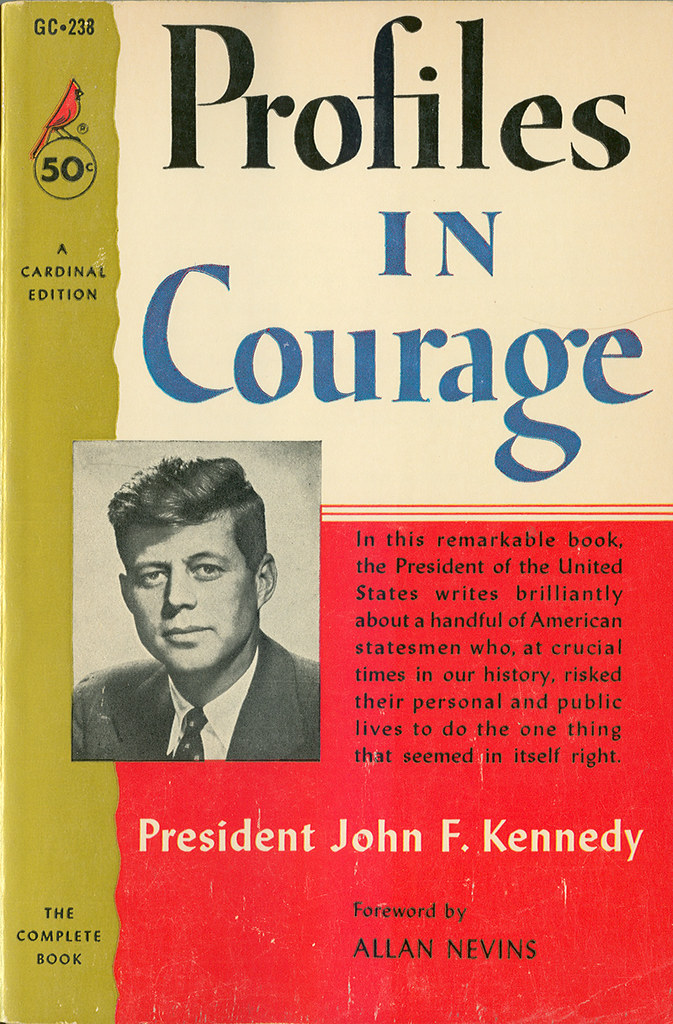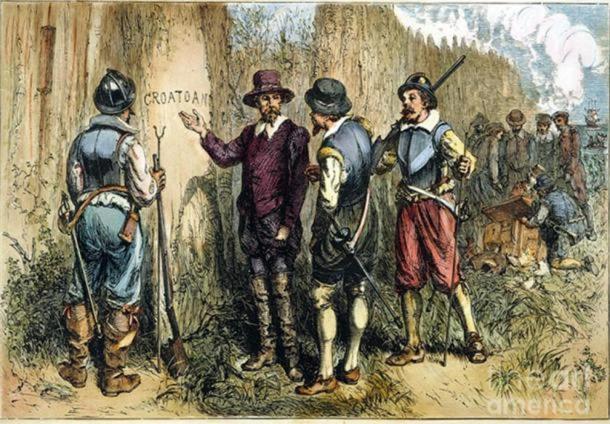The Historic Achievement That Set Kennedy Apart

Picture this: a young senator, recovering from painful back surgery, spending months in bed writing what would become one of the most controversial books in American political history. That senator was John F. Kennedy, and in 1957, he became the only U.S. president to win a Pulitzer Prize for his book “Profiles in Courage”. Only one U.S. President has won the Pulitzer Prize and that is John F. Kennedy. He won for Biography for Profiles in Courage in 1957. This achievement remains unmatched among all 46 presidents who have served the United States. While other presidents have received various honors, including Nobel Peace Prizes, Kennedy’s literary recognition stands completely alone. John F. Kennedy was the first member of Congress to receive a Pulitzer Prize, won for his book “Profiles In Courage”. The timing was particularly remarkable – he would become president just four years later, making this accomplishment even more extraordinary in hindsight.
The Book That Changed Everything

Profiles in Courage is a 1956 volume of short biographies describing acts of bravery and integrity by eight United States senators. The book, authored by John F. Kennedy with Ted Sorensen as a ghostwriter, profiles senators who defied the opinions of their party and constituents to do what they felt was right and suffered severe criticism and losses in popularity as a result. He writes: “This is a book about that most admirable of human virtues – courage. ‘Grace under pressure,’ Ernest Hemingway defined it.” The senators Kennedy profiled had risked everything – their careers, their reputations, their political futures – to stand up for what they believed was right. Kennedy wasn’t just telling stories; he was creating a blueprint for political integrity that would define his own presidency. When Kennedy took a leave of absence from the Senate in 1954 to recover from back surgery, it gave him the opportunity to study the topic of political courage. The project resulted in the publication of Profiles in Courage, which focuses on the careers of eight United States Senators whom Kennedy felt had shown great courage under enormous pressure from their parties and their constituents.
The Controversial Path to Victory

Here’s where the story gets really interesting – and messy. The book won the Pulitzer Prize for Biography in 1957, even though it was not one of the finalists forwarded to the prize board from the selection committee. Kennedy’s father Joseph asked columnist Arthur Krock, his political adviser and a longtime member of the prize board, to persuade others to vote for it. This behind-the-scenes maneuvering would later fuel speculation about the legitimacy of the award. The Pulitzer Committee essentially bypassed their own process to honor Kennedy’s work. Some critics argued this was political favoritism, while supporters maintained the book deserved recognition regardless of the unconventional path to victory. Although friends and family said that the Pulitzer made Kennedy happier than his World War II Purple Heart or any other award, and Kennedy told Margaret Coit in 1953 “I would rather win a Pulitzer Prize than be president”.
The Ghostwriting Scandal That Nearly Destroyed Kennedy

On December 7, 1957, journalist Drew Pearson appeared as a guest on The Mike Wallace Interview and made the claim that “John F. Kennedy is the only man in history that I know who won a Pulitzer Prize for a book that was ghostwritten for him.” This bombshell accusation threatened to derail Kennedy’s presidential ambitions before they even began. You know, there’s a little wisecrack around the Senate about Jack … some of his colleagues say, ‘Jack, I wish you had a little less profile and more courage.’ The irony was devastating – here was a book about political courage, and Kennedy was being accused of lacking the courage to write it himself. Sorensen swore an affidavit stating that his only role was “to assist [Kennedy] in the assembly and preparation of research and other materials upon which much of the book is based”. But the damage was done, and questions about authorship would follow Kennedy for the rest of his career.
Ted Sorensen’s Explosive 2008 Revelation

The truth about “Profiles in Courage” remained murky for decades until a shocking confession changed everything. However, in his 2008 autobiography, Kennedy’s speechwriter Ted Sorensen, who was presumed as early as 1957 to be the book’s ghostwriter, acknowledged that he “did a first draft of most chapters” and “helped choose the words of many of its sentences”. This admission, coming more than 50 years after the Pulitzer Prize was awarded, essentially confirmed what critics had suspected all along. Craig Fehrman, author of Author in Chief: The Untold Story of Our Presidents and the Books They Wrote, wrote in 2020 that “The book’s structure, research, first draft and most of its second came from [Sorensen]”. Sorensen’s honesty in his twilight years finally put to rest the question of who really wrote the Pulitzer Prize-winning book. That month the Kennedys agreed to pay Sorensen more than $100,000, an amount Fehrman said was “frankly astonishing”.
Why Kennedy Remains the Only Presidential Pulitzer Winner

Despite the controversy, Kennedy’s achievement stands alone in presidential history. Obama was the fourth U.S. president to be awarded the Nobel Peace Prize, after Theodore Roosevelt (1906) and Woodrow Wilson (1919)—both of whom received the award during their terms—and Jimmy Carter (2002), who received the award 21 years after leaving office. Obama is the fourth president of the United States to have won the Nobel Peace Prize. While four presidents have won Nobel Peace Prizes, none have captured the Pulitzer Prize except Kennedy. The Pulitzer Prize focuses specifically on American achievements in journalism, literature, and music, making it a distinctly American honor. Presidential memoirs and political books are common, but none have achieved the literary recognition that Kennedy’s work received. The standards for the Pulitzer Prize are incredibly high, and political books rarely make the cut unless they demonstrate exceptional literary merit.
The Eight Senators Who Inspired a President

These heroes include John Quincy Adams, Daniel Webster, Thomas Hart Benton, and Robert A. Taft. Each of these senators faced a moment when their political survival clashed with their moral convictions, and they chose principle over popularity. In this book President Kennedy profiles eight Senators, and their courage to stand up for their beliefs despite voting against the wishes of their constituents. Most of these men lost their seats in the Senate because of their choices. Kennedy’s choice of subjects wasn’t random – he was building a pantheon of political heroes who embodied the kind of leadership he aspired to represent. Sam Houston earned his place in Profiles in Courage by his refusal to support the Kansas-Nebraska Act of 1854. A Southerner by birth and one of the first two Senators from Texas, Houston felt that the act would further divide the Union. He was the sole Southern Democrat to vote against the Kansas-Nebraska Act. These stories became the foundation for Kennedy’s own political philosophy and presidential leadership style.
The Timing That Made History

After its release on January 1, 1956, Profiles in Courage became a bestseller. The book’s success came at the perfect moment in Kennedy’s career – he was already a senator with presidential ambitions, and this literary achievement gave him intellectual credibility that separated him from other politicians. The book returned to the bestseller lists in 1961 after Kennedy became president and again in 1963 after he was assassinated. The Pulitzer Prize transformed Kennedy from a young senator into a serious presidential contender with proven intellectual depth. Kennedy tried to have it published before the end of 1955 to qualify for the Pulitzer Prizes in 1956; Profiles appeared on its original date of January 2, 1956, eligible for the 1957 prizes. This strategic timing suggests Kennedy understood the potential impact this book could have on his political future.
The Literary Legacy That Continues Today

The 2025 John F. Kennedy Profile in Courage Award® was presented to Vice President Michael R. Pence for putting his life and career on the line to ensure the constitutional transfer of presidential power on January 6, 2021. Kennedy’s book didn’t just win a prize – it created an entirely new standard for political courage that continues to influence American politics today. The award recognizes a public official (or officials) at the federal, state, or local level whose actions demonstrate the qualities of politically courageous leadership in the spirit of Profiles in Courage, President Kennedy’s 1957 Pulitzer Prize-winning book, which recounts the stories of eight U.S. senators who risked their careers by embracing unpopular positions for the greater good. The John F. Kennedy Library Foundation has turned the book’s concept into an annual award that celebrates political courage in contemporary American politics. Profiles in Courage was the basis of a television series of the same name that aired on the NBC network during the 1964–1965 television season.
The Money Trail That Exposed the Truth

Follow the money, and you’ll often find the truth. Sorensen claimed that in May 1957, Kennedy “unexpectedly and generously offered, and I happily accepted, a sum to be spread over several years, that I regarded as more than fair” for his work on the book. This payment, coming right after the Pulitzer Prize was announced, raised serious questions about Kennedy’s role in the book’s creation. Kennedy claimed that he had kept all of the earnings from Profiles despite the two payments to Sorensen, and that the Pulitzer was proof of his authorship. The financial arrangements between Kennedy and Sorensen tell a story that contradicts the official narrative of Kennedy as the sole author. Fehrman further claimed Kennedy worked harder on promoting Profiles, signing autographs and making many public appearances for the book, than he did writing it. These revelations suggest Kennedy was more of a celebrity endorser than the actual author of his Pulitzer Prize-winning work.
How JFK’s Prize Compares to Other Presidential Honors

Kennedy’s Pulitzer Prize stands in stark contrast to other presidential awards because it recognizes intellectual and literary achievement rather than political accomplishment. President Woodrow Wilson in 1920, for his efforts in ending the First World War and help in creating the League of Nations. President Barack Obama in 2009, for his efforts to strengthen international diplomacy and cooperation. While Nobel Peace Prizes honor diplomatic achievements, the Pulitzer Prize celebrates the written word and intellectual contribution to American culture. Three U.S. Presidents have won Grammy Awards, all for Best Spoken Word Album, all for audiobooks. Even Grammy Awards for presidents focus on performance rather than original creative work. Kennedy’s Pulitzer Prize remains unique because it supposedly recognized his skills as a writer and historian, not just his political accomplishments or speaking ability.
The Impact on Presidential Campaign Strategy

Kennedy’s Pulitzer Prize revolutionized how politicians approach their public image and intellectual credibility. In 1956, Kennedy gave a copy of the book to Richard Nixon, who responded that he was looking forward to reading it. After being defeated by Kennedy in the 1960 United States presidential election, Nixon was advised by Mamie Eisenhower to write a book himself. Nixon visited the White House in April 1961 and got the same advice from Kennedy: writing a book would raise the public image of any public man. Nixon wrote his book Six Crises (1962) in response to Profiles in Courage. This started a trend of politicians using books to establish their intellectual credentials and connect with voters on a deeper level. Kennedy proved that literary achievement could be a powerful political weapon, and every presidential candidate since has tried to replicate this formula.
The Modern Question: Would Kennedy’s Book Win Today?

Many readers note that “this book only won the Pulitzer because he is the president,” but I beg to differ. Second, the prose in certain sections of the text equals history written by more famous history writers like McCullough, who are known for their story telling skills. The standards for the Pulitzer Prize have evolved significantly since 1957, and it’s fascinating to consider whether Kennedy’s book would win today. Profiles in Courage lies somewhere in the middle, and, perhaps, Kennedy’s standing as a senator gave it an extra nudge that it probably didn’t need. Modern Pulitzer committees face much more scrutiny and have more rigorous vetting processes to prevent the kind of behind-the-scenes influence that helped Kennedy win. The ghostwriting controversy would likely disqualify the book immediately in today’s literary environment. However, the book’s enduring popularity and influence suggest it had genuine merit beyond Kennedy’s political connections. “For, in a democracy, every citizen, regardless of his interest in politics, ‘holds office’; every one of us is in a position of responsibility; and, in the final analysis, the kind of government we get depends upon how we fulfill those responsibilities. We, the people, are the boss, and we will get the kind of political leadership, be it good or bad, that we demand and deserve.”
The Enduring Mystery of Presidential Literary Achievement

Kennedy’s unique position as the only president to win a Pulitzer Prize raises intriguing questions about the relationship between political leadership and literary talent. John F. Kennedy had long been interested in the topic of political courage, beginning with his senior thesis at Harvard. The thesis, later published as Why England Slept, was a study of the failure of British political leaders in the 1930s to oppose popular resistance to rearming, leaving the country ill-prepared for World War II. His intellectual curiosity and writing ability were evident long before “Profiles in Courage,” suggesting genuine literary talent regardless of the ghostwriting controversy. Most presidents focus entirely on governance and politics, leaving little time for serious literary pursuits. Kennedy’s achievement remains remarkable not just for its uniqueness, but for what it represents about the possibility of combining political leadership with intellectual achievement. Whether he actually wrote the book or not, Kennedy understood the power of ideas and storytelling in a way that set him apart from every other president in American history.
After all these decades and revelations, one thing remains crystal clear: Kennedy’s Pulitzer Prize achievement stands completely alone in presidential history. Did you expect that a literary award would become such a lasting political legacy?






